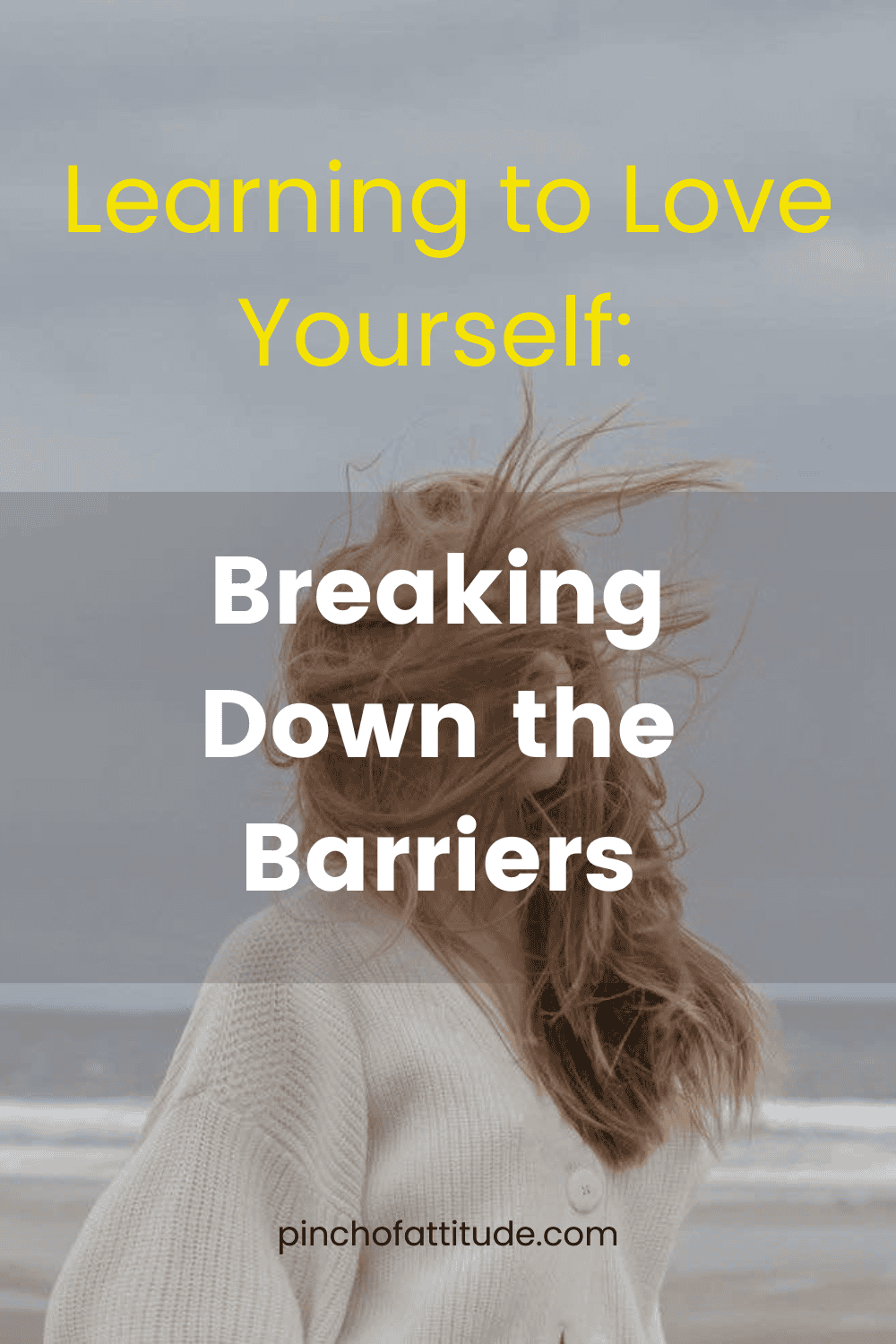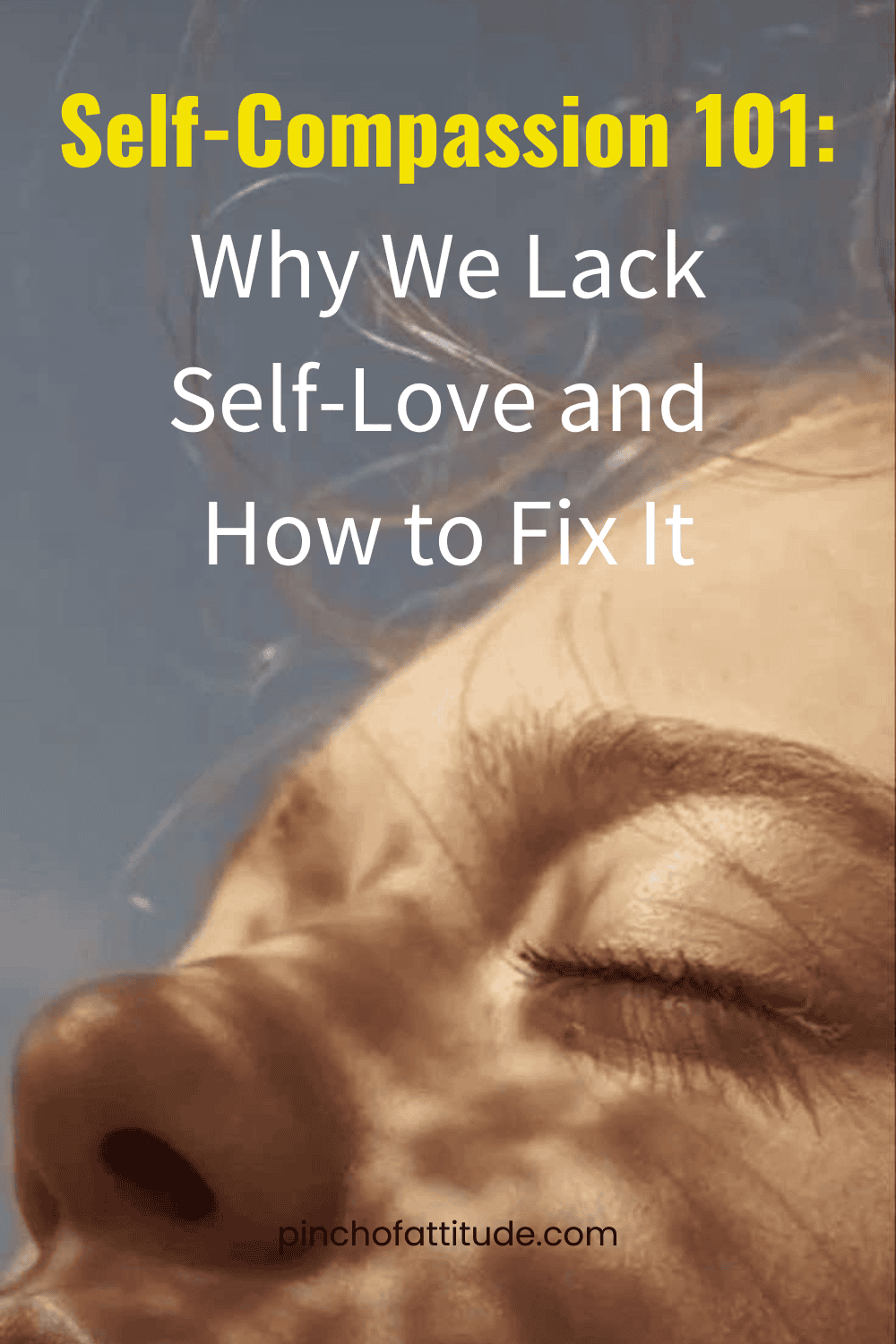When you look in the mirror, what do you see? When you have a bad day, do you treat yourself the same way you would treat anyone else going through the same thing?
Self-love is not just an online trend with beautiful quotes.
Self-love is your manual for self-empowerment and true happiness.
But yet, so many of us are still struggling with the idea of truly accepting and loving ourselves. This takes me to the ultimate question: where does a lack of self-love come from?
Throughout my personal and professional life experiences, I have seen how easily most of us put everyone’s needs in front of our own.
How women pour love into others, while completely forgetting to love themselves. Or how my father, my friends, and even myself, so easily put other people’s needs first, while we completely neglected ourselves.
And for as long as I can remember while navigating my adulthood journey, I’ve been interested in understanding why some of us struggle with self-love and where does lack of self-love comes from.
Why is it that some of us seem to have it all, while the majority of us are still struggling?
Why are we so ready to sacrifice our own well-being for others when we aren’t able to do the same for ourselves?
So today, I want to unpack these crucial questions. Because recognizing the roots of our self-neglect is the first step to embracing the self-love that you and I have been putting on the back burner because we don’t want to deal with it.
So let’s start this life-changing journey together. Are you ready?
- Lack of self-love often originates from upbringing, societal expectations, personal experiences, and media influence.
- Surrounding yourself with positive, supportive relationships is quintessential for cultivating self-love.
- Overcoming self-love struggles requires self-compassion, embracing individuality, and challenging unrealistic beauty standards.
Table of Contents
Where Does Lack of Self-Love Come From?
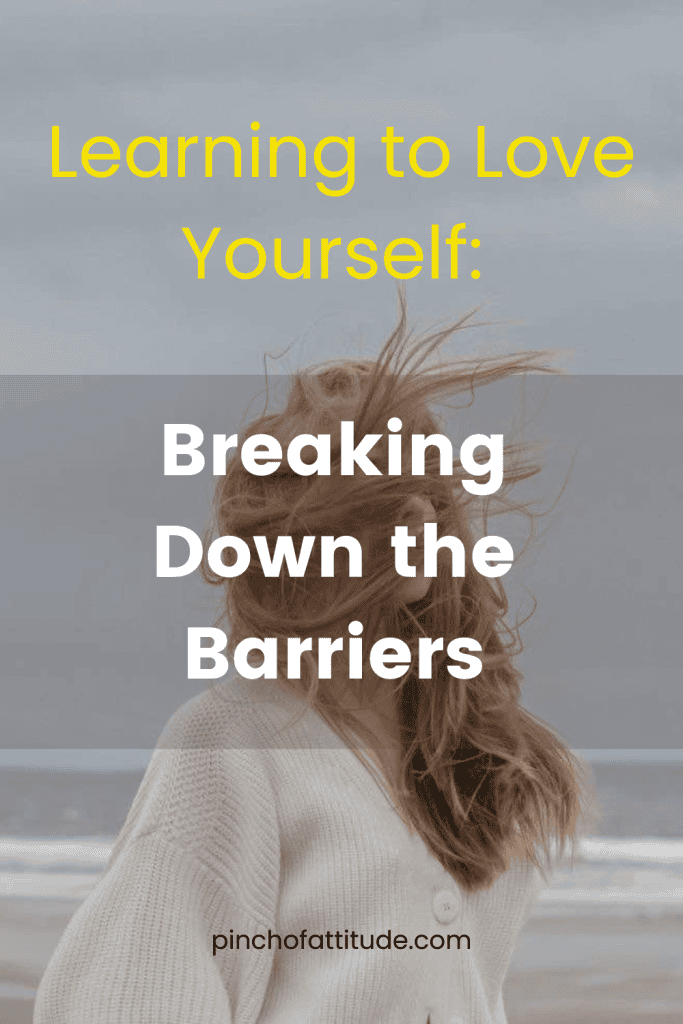
There are many variables that contribute to our lack of self-love, below are a few areas I believe are why loving ourselves is hard for some and non-existent for others.
Impact of Upbringing and Family Dynamics
I’m not sure if many of us know this, but the foundation of self-love starts in our childhood.
The way we were raised, as well as the environment we grew up in, plays a crucial role in shaping our self-worth and self-esteem. Family dynamics can often contribute to your lack of self-love.
For example, if you’ve experienced trauma, such as neglect, or if your parents have set unrealistic expectations for you, those circumstances might drag you into a lifetime of struggle with self-love.
Throughout my life, I have not felt the love of my mother. She completely neglected my need to have a motherhood figure in my life, and that caused me to deal with emotional attachment until this day.
So I understand if you are also struggling with the idea of accepting love from others.
But one thing I need you to remember is, that even though you had a tough upbringing, that doesn’t mean that you have to struggle with a lack of self-love your entire life.
One useful tip that may help you to begin your self-love journey is to practice self-compassion and remember to give yourself the love and understanding that you may not have received in your childhood.
Cultural and Societal Expectations

Sadly, our society often imposes numerous expectations on us, changing our perception of what we should look like, how we should behave, and the path we should follow.
And of course, due to the power of our online presence nowadays, the influence of social media has massively aggravated these expectations.
The constant comparing yourself to others can also emphasize those feelings of inadequacy and self-loathing.
One way to overcome those feelings is to try to focus on your accomplishments, strengths, and unique qualities.
I remember the days when the only thing it took for me to feel unworthy was a browse at my social feed. Being a woman is a unique experience, and with it comes a set of cultural and societal expectations that can sometimes hinder the journey of self-love.
If social media is a source of negative feelings, then you should consider limiting your exposure or changing the types of accounts you follow to those that inspire and motivate you.
Gender Roles and Stereotypes
Gender roles and stereotypes can also contribute to a lack of self-love, as they can lead to unsolicited anxiety and judgments from others. This can make you feel inferior or restricted in expressing your true identity.
While society is currently more open to diversity, there’s still a long way to go for many people who still don’t feel accepted.
One way to overcome the pressure of gender roles and stereotypes is to reconnect with what truly matters to you without allowing other people’s lack of empathy to get in the way of embracing yourself.
It’s also essential for men to understand how to practice self-love as a man, especially given the unique societal pressures and expectations men face.
It’s important to remember to pursue your passions and prioritize your happiness, regardless of whether it aligns with society’s expectations. It’s important to embrace your individuality and break free from any limitations set by other people.
The practice of self-love is an ongoing journey that requires mindful effort. You must be kind to yourself as you navigate through external influences.
You should also reflect on your own upbringing because embracing a nurturing self-perception will help you overcome obstacles and cultivate a healthy love for yourself.
And please remember, you deserve to feel happy and confident in your own skin no matter what anyone else says.
Personal Factors Contributing to Lack of Self-Love

Effects of Personal Experiences and Traumas
Just like a bad upbringing, past experiences and traumas can significantly impact your ability to love and accept yourself.
Many of us can remember that ‘one moment‘ that changed us completely.
When we experience moments of pain, disappointment, or loss, it’s natural to question our self-worth and even feel unworthy of love, but it’s not okay to pursue this belief when, in reality, you can’t be defined by mistakes or the things that happened to you.
However, when you are dealing with past trauma, it can be hard to see beyond your pain, so to overcome this, it’s essential to acknowledge your experiences, validate your feelings, and seek help from professionals or supportive networks.

Influence of Relationships and Social Interactions
Another major thing that can impact your ability to self-love is, of course, the relationships and social interactions you have throughout your life.
Unhealthy relationships can very often result in emotional trauma, self-doubt, and insecurity. Needless to say those feelings will massively influence your capability to love yourself.
When you are not emotionally strong, you can easily accept the unwelcome thoughts of self-hatred. You also become more suitable in accepting others’ opinions that aren’t necessarily helpful or true.
This is why, it’s so important to surround yourself with positive, uplifting individuals who value and respect you and can definitely help you to be more accepting of self-love.
A good way to create this change is to engage in activities that promote a healthy social life and encourage you to connect with like-minded, supportive people such as:
- Join a hobby club or a sports team
- Attend workshops or classes that interest you
- Volunteer for a cause you’re passionate about
It’s important to remember that not all interactions will be positive, and remember that it’s okay to distance yourself from toxic or unhealthy connections.
Self-Esteem and Body Image Issues
Low self-esteem and negative body image may also be a result of a variety of factors, such as societal expectations, media influence, and personal experiences.
These issues can contribute to a lack of self-love, as they make you question your worth and appearance. For most of my adulthood, I’ve been battling with my weight.
Society’s views on the perfect size are definitely damaging for anyone who struggles with any type of busy image.
So it’s important for anyone who struggles with this to find ways to boost their emotional strength and, of course, change their self-beliefs for the better.
Here are some practical tips to boost your self-esteem and promote a healthier body image:
- Practice self-affirmations: Daily affirmations can help change your mindset and cultivate positive self-talk. You should always remember to focus on your strengths, talents, and achievements.
- Take care of your body: Engage in regular exercise, eat a balanced diet, and prioritize self-care. It’s important to treat your body with kindness and respect.
- Limit exposure to unrealistic ideals: Limit social media use, follow accounts that promote body positivity, and focus on content that uplifts and empowers you.
Making use of these tips in your daily routine can definitely help you but please remember that self-love is an ongoing journey.

Media and Lack of Self-Love
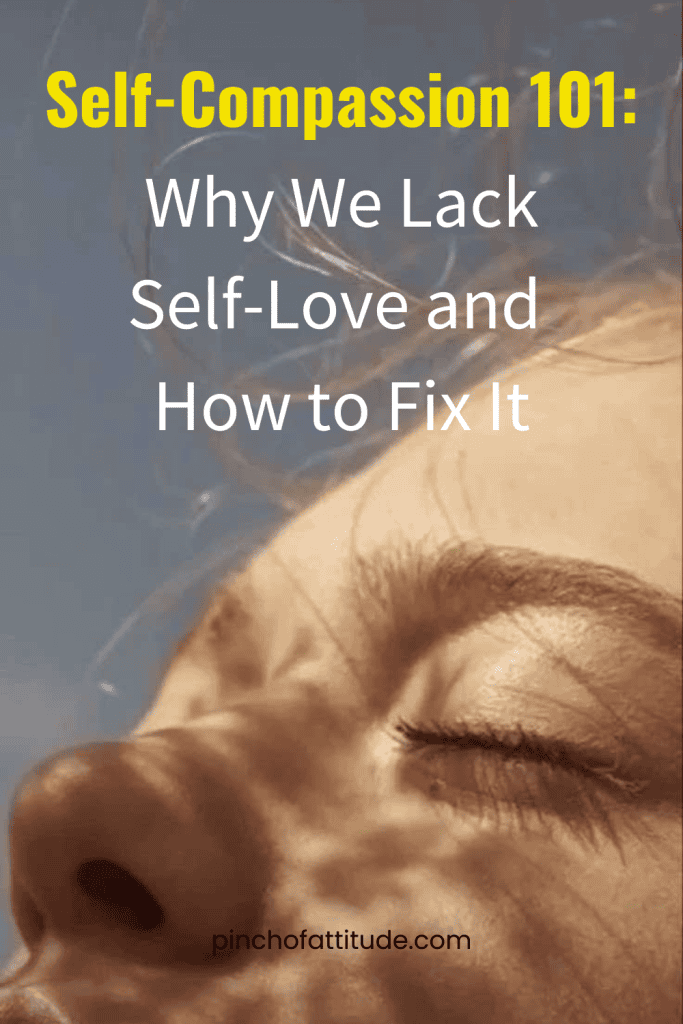
The Impact of Mainstream Media and Social Media on Self-Perception
If you don’t live under a rock, then you are probably aware of how social media constantly bombards us with images and messages about how we should look and what we should be.
This can lead to an inaccurate self-perception, causing an unhealthy relationship with your body and self-worth.
While you are the only one with the power to define what a perfect life looks like to you.
Social media will amplify their voices and bombard you with images and stories that may affect your ability to really listen to your own voice.
As you’re constantly exposed to the “perfect” lives and appearances of others, this can result in feelings of inadequacy and a sense that no matter what, we are never “enough.”
Unfortunately, the majority of us will still use social media.
However, to change the harmful impact that social can have on your life, it’s important to remember that what you see on social media is often a carefully staged reel rather than a whole representation of someone’s life.
Unrealistic Beauty Standards and Comparisons
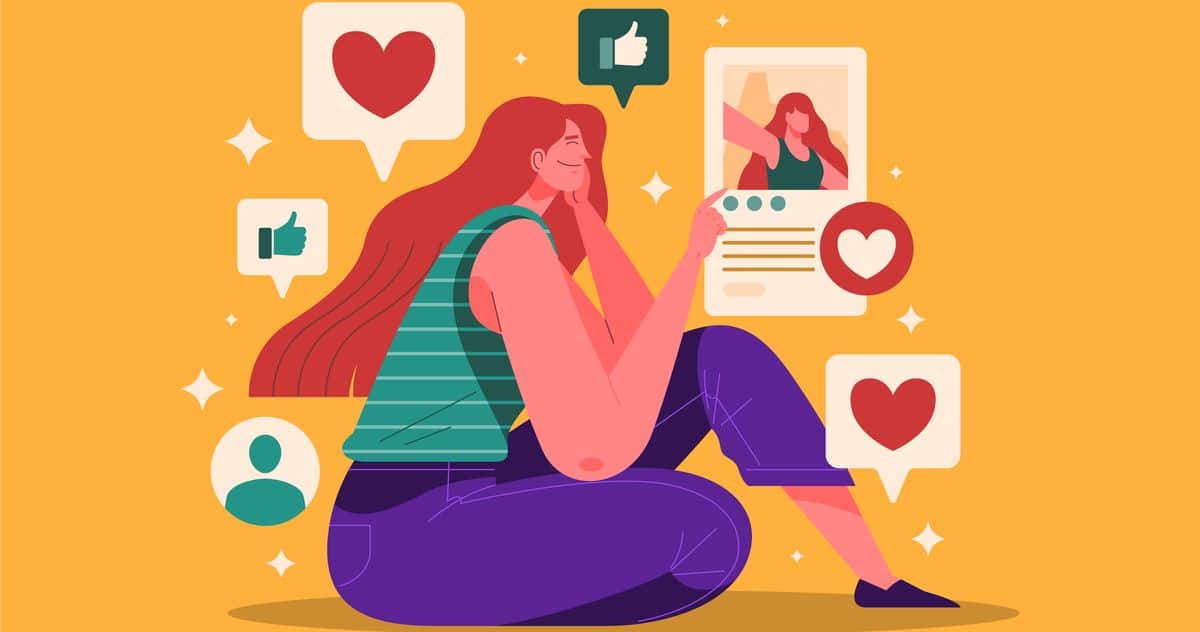
Just like social media, mainstream media often promote unrealistic beauty standards that are difficult, if not impossible, to achieve.
This can help build pressure and increase anxiety, as you may think you need to look like a supermodel, actress, or influencer to be considered beautiful or successful.
But the truth is, these beauty standards are not a reflection of the real world or the many different ways to define beauty.
One thing that I share with others when it comes to the mainstream media.
It’s how it’s so important to acknowledge that everyone’s body is unique. And instead of comparing yourself to others, it would be more helpful to you to focus on your own goals, strengths, and well-being instead.
Because you should always be your first priority, so why are you allowing others to change the way you see yourself?
Tips for avoiding unhealthy comparisons include:
- Limiting your screen time: Allocate specific time slots for browsing social media or watching TV to avoid continuous exposure to unrealistic ideals.
- Filling your feed with positive content: Follow accounts that promote self-love, body acceptance, and mental health awareness.
- Practicing self-compassion: When you notice yourself comparing, remind yourself that you’re human and that it’s okay not to be perfect.
The Role of Influencers and Celebrities in Shaping Self-Perception
Influencers and celebrities also play a significant role in shaping your self-perception, especially when it comes to defining what beauty and success are all about.
It’s easy to feel inferior when you are comparing yourself to famous individuals who seem to have it all. But this assumption couldn’t be more wrong.
You need to remember that celebrities and influencers often have resources and support that the average person does not, the glamour and success you see on their profiles are not their full story, and instead of comparing yourself to them, you should instead focus on your own journey.
To create a healthier self-image, consider the following:
- Seek out role models who embody your values: Rather than just looking at appearances, find influencers or celebrities who share your beliefs and use their platforms for good.
- Be critical of the images you see: question the authenticity of the content you consume, and remember that even celebrities use filters, angles, and lighting to create a perfect image.
By focusing on promoting self-love and developing a healthier relationship with what you see in the media, you can improve your self-perception and your overall well-being.
One thing that you need to always remember, is that you are more than what you see on the screen; true beauty and success come from within, and your self-worth is not determined by how close you get against unrealistic standards.
Related Posts:
- 15 Reasons Why Self-Love Is Important: Yep! Loving Who I Am, Flaws and All
- Self-Love and Mental Health Mastered: You’re Worth Loving
- 21 Effortless Hacks on How to Love Yourself and Be Confident
- 87 Self-Love Affirmations to Unlock Your Potential & How to Do It Right
- Being in a Relationship Without Self-Love: Why We All Do That?
Frequently Asked Questions
How does upbringing affect self-love?
Upbringing plays an important role in developing self-love. Trauma or neglect can contribute to a lifetime struggle, but self-love is still possible with self-compassion and healing.
Can societal expectations impact self-love?
Yes, societal expectations and media influence can distort self-perception, leading to feelings of inadequacy. Focus on your strengths and uniqueness.
How do my personal experiences affect self-love?
Your negative experiences and traumas can significantly impact your self-love. Acknowledge your experiences, seek support, and give yourself time to heal and rebuild.
Can social media affect self-love?
Yes, social media can amplify self-perception issues. Limit exposure, follow positive accounts, and remember that it’s a curated representation of reality.
What can I do to improve my self-esteem and body image?
Boost self-esteem through self-affirmations, self-care, and limiting exposure to unrealistic ideals. Embrace your uniqueness and focus on your well-being.

